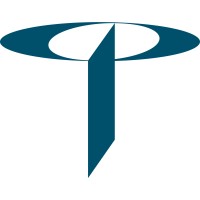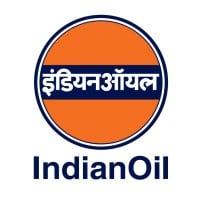Company Cyber Security Posture
NANA
NA Company Details
NA
NA
NA
NA
NA
NA
Scan still pending
NA
NA
Between 200 and 800
This score is AI-generated and less favored by cyber insurers, who prefer the TPRM score.
 NA Global Score
NA Global Score.png)

Company Scoring based on AI Models
| Model Name | Date | Description | Current Score Difference | Score |
|---|---|---|---|---|
| AVERAGE-Industry | 03-12-2025 | This score represents the average cybersecurity rating of companies already scanned within the same industry. It provides a benchmark to compare an individual company's security posture against its industry peers. | N/A | Between 200 and 800 |
Company Cyber Security News & History
| Entity | Type | Severity | Impact | Seen | Url ID | Details | View |
|---|
Company Subsidiaries

NA
Access Data Using Our API

Get company history
.png)
NA Cyber Security News
Industrial cybersecurity coalitions rise to meet growing OT/ICS cyber threats, build awareness, take action
Industry coalitions are meant to promote active participation in interaction among peers to allow for the exchange of information, competencies, and skills.
Baker Hughes, NNPC/FIRST E&P JV to deploy Leucipa™ Automated Field Production Solution in Niger Delta
With a 100-year heritage of energy innovation, Baker Hughes is integrating digital solutions such as Leucipa with proven technologies to help ...
Hanwha Ocean's Cybersecurity Breakthrough Positions It as an FPSO Cyber Leader Amid Rising Risks
The demand for OT cybersecurity solutions is being turbocharged by two megatrends: the digitalization of energy infrastructure and the push for ...
Baker Hughes supplying compressors, motors for Liverpool Bay CO2 injection
Baker Hughes has been awarded a contract by Saipem to supply CO2 compression technology for Eni's Liverpool Bay CCS project in the UK.
Hanwha Ocean secures AIP for cybersecurity solution for FPSO units
Hanwha Ocean, in partnership with SIGA Data Security, developed a cybersecurity solution to protect critical OT systems from cyber threats.
Navigating U.S.-Iran Tensions: Defense, Cybersecurity, and Energy Plays for 2025
Geopolitical tensions have amplified cyber threats from state actors like Iran, which increasingly weaponize AI-driven attacks. Cybersecurity ...
SLU computer science department sets Industry Connect lecture
Southeastern Louisiana University's Department of Computer Science is hosting the third of the fall Industry Connect Distinguished Lectures ...
How Enterprises Can Fortify Cybersecurity ‘Weak Links’
The recent LexisNexis breach highlights the need to go “back to basics,” one expert says.
Kicking dependency: Why cybersecurity needs a better model for handling OSS vulnerabilities
Most organizations are still immature when it comes to identifying open-source dependencies that can usher in a host of problems when dealing with ...

NA Similar Companies

Transocean
Transocean is a leading international provider of offshore contract drilling services for oil and gas wells. The company specializes in technically demanding sectors of the global offshore drilling business with a particular focus on deepwater and harsh environment drilling services, and believes th

Oil and Gas Systems
Oil and Gas System Company offers combined solutions for project equipping, new product development, project designing and services for enterprises of oil and gas, power, transport-building and other industries. Oil and Gas System Company is the exclusive supplier of Russia’s leading machine-buil

Indian Oil Corp Limited
As India's flagship national oil company in the downstream petroleum sector, IndianOil has been fuelling the energy demands of India for over five decades. With a 33,000-plus work-force, extensive refining, distribution & marketing infrastructure and advanced R&D facilities, lndianOil plays a signif

Gas Natural Fenosa
Gas Natural Fenosa is a leading multi-national in the gas and power sectors. It operates in 23 countries and has more than 20 million customers around the world. Following its recent acquisition of UNIÓN FENOSA, Spain's third biggest power company, Gas Natural Fenosa has achieved its objective of

YPF
En YPF, tenemos un Plan 4x4 para convertirnos en una compañía de clase mundial y lograr transformarnos en grandes exportadores de hidrocarburos. Nuestros cuatro pilares son: la aceleración de la producción de petróleo en Vaca Muerta, el activo más importante que tiene nuestro país; la disciplina f

Fuel Company TVEL
Organizationally, TVEL Fuel Company consists of its major company JSC TVEL, which takes the lead within the Fuel Company and governs affiliated companies – enterprises of nuclear fuel cycle of Russia. The Fuel Company includes large Russian enterprises rendering services in fabrication, supply and s

Frequently Asked Questions
Explore insights on cybersecurity incidents, risk posture, and Rankiteo's assessments.
NA CyberSecurity History Information
How many cyber incidents has NA faced?
Total Incidents: According to Rankiteo, NA has faced 0 incidents in the past.
What types of cybersecurity incidents have occurred at NA?
Incident Types: The types of cybersecurity incidents that have occurred include .
Additional Questions
What Do We Measure?
















Every week, Rankiteo analyzes billions of signals to give organizations a sharper, faster view of emerging risks. With deeper, more actionable intelligence at their fingertips, security teams can outpace threat actors, respond instantly to Zero-Day attacks, and dramatically shrink their risk exposure window.
These are some of the factors we use to calculate the overall score:
Identify exposed access points, detect misconfigured SSL certificates, and uncover vulnerabilities across the network infrastructure.
Gain visibility into the software components used within an organization to detect vulnerabilities, manage risk, and ensure supply chain security.
Monitor and manage all IT assets and their configurations to ensure accurate, real-time visibility across the company's technology environment.
Leverage real-time insights on active threats, malware campaigns, and emerging vulnerabilities to proactively defend against evolving cyberattacks.




